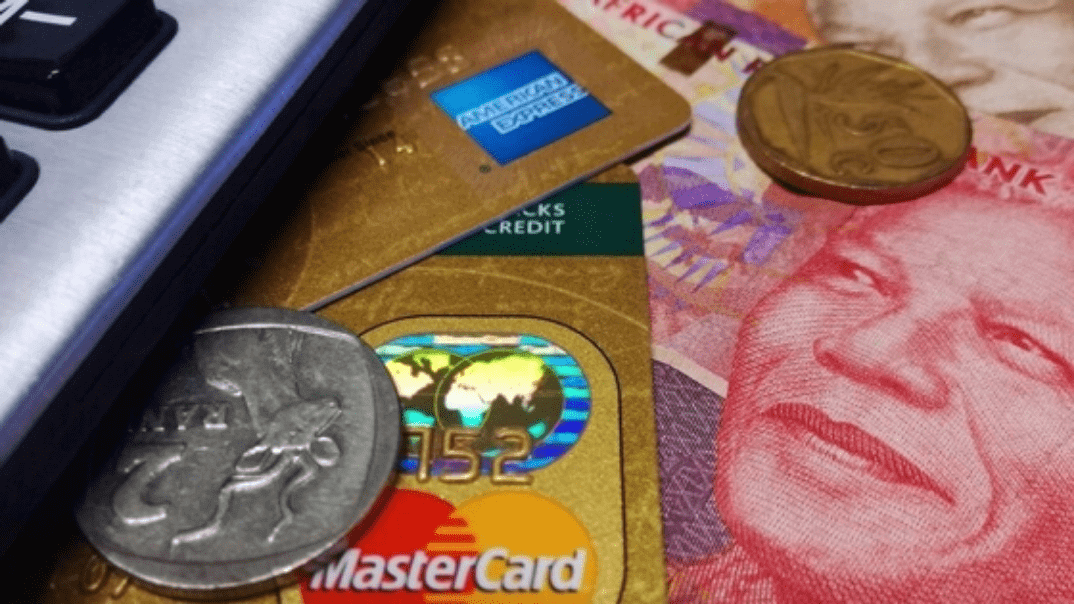Find out everything you need to know about your credit record when applying for car finance. Understand the difference between debt review, judgements, and defaults, and why it’s important to keep your credit record clean—as well as some handy tips on how to check your credit score and keep it in top shape!
The very first step towards cleaning up your credit history is to understand the difference between debt review, judgements, and defaults, and why it’s important to address these issues as quickly as possible. Once you’re familiar with these terms and how they affect your ability to obtain finance, you can start to reverse any damage already done to your credit record by cleaning up your credit history.
Who are debtors and creditors?
For those who aren’t familiar with accounting terms, we will be mentioning debtors and creditors throughout this article.
- A debtor is a person or entity (e.g. a company) who owes money.
- A creditor is the person or entity who has lent money or extended credit (e.g. a clothing account) to the debtor. This can be either a person, a financial institution (e.g. a bank) or an organisation (e.g. a retail outlet or supplier). The term ‘credit’ simply means borrowing money from a financial institution that you must pay back. (The money you pay back includes interest).
Can you buy a car if you’re under debt review?
There is a common notion out there that if you’re under debt review, you won’t be able to qualify for car finance, and while that is true, there are other options that you can take in order to get yourself a vehicle while under debt review. The National Credit Act 34 of 2005 prevents financial institutions from giving credit to individuals who are considered financially over-indebted.
Any registered financial institution that approves a loan to someone who’s over-indebted is at risk of being charged with reckless lending and could face millions of Rands in fines.Being under debt review can cause a stressful situation when you want to regain your independence by driving your own car instead of relying on public transport.
In South Africa, you will need to manage the debt review process thoroughly, and also consider all the other unpredictable circumstances, such as the low economic outlook, rising living costs, and high levels of unemployment.Before you can apply for car finance from a reputable financial institution, you’ll need to settle any outstanding judgements.
This should clear up your credit history enough to apply for finance, however, you’re still likely to incur a higher interest rate given that you’re a high-risk individual.It becomes a vicious cycle when having a car is a requirement for applying for a job—you can't afford a car without a job, and you can't get a job without a car. If you’re unable to pay all of your outstanding judgments in full, you may need to consider leasing a car until you can afford to pay off your debt, at which point you’ll be able to apply for car finance. Alternatively, you may need to speak to your employer and negotiate terms to help you lease a car or apply for finance. Failing that, your only option is to buy an affordable second-hand vehicle, which you’re able to pay for in cash. Don’t be tempted to take out a loan from a disreputable financial provider. This is extremely dangerous. If you don’t qualify for car finance, rather consider an alternate method of buying a car—like a rent-to-own option.
What happens when you are under debt review?
When you go under debt review, you are declared over-indebted and flagged at the credit bureaus as a debt review client. This prevents you from taking up any more credit, as the main purpose of debt review is to help you clear existing debt.
Being under debt review means you will be appointed a debt counsellor who will work through your income and expenses and will determine that you are over-indebted and debt-stressed.
The debt counsellor will inform your creditors and the credit bureaus and draw up an interim repayment plan. Once the debt review process is completed, a debt counsellor will issue a clearance certificate.This can be used to remove the debt review flag from your credit report update and have your credit score set back to zero.It’s crucial that you stick to your repayment plan when you're under debt review, as skipping payments will result in the agreement being cancelled.
How long does it take to get a debt review clearance certificate?
Debt counselling is a legal and regulated process, so, like any other court case, it can only be officially closed through a legal process.
After you have paid off all your debt and your debt counsellor has applied for and received your clearance certificate, they have seven days to submit it to the credit bureaux so that they can clear your record. The credit bureaux themselves also have seven days to remove the debt review flag from your record and update on their end that your debt review case is closed. The whole process should take about 21 days to complete.
What is your credit rating?
A credit score is a numerical rating which is calculated using the information in your credit report, including your payment history, the amount of debt you have, and the length of your credit history.
Credit scores are used by potential lenders and creditors, such as banks, credit card companies or car dealerships, when deciding whether to offer you credit, like a loan, car finance, or credit card. Essentially, your credit score determines how likely you are to pay back the money that you lend, as well as the interest you will pay on the credit that you get.
A high credit score means you will have access to credit, larger loan amounts, and potentially better interest rates. A low score means you are likely to default on your loan repayments, and may therefore have difficulties accessing credit.
All the information in your credit report is confidential, and that’s why only licensed credit bureaux maintain the credit reports and the information they contain.
Your credit score is based on your financial history. The credit bureau looks at the following:
- Bank accounts.
- History of payments and accounts.
- The length of time that you have had your accounts.
- Any judgements or defaults you may have had against you.
- How much you owe and have owed.
Keep in mind, your credit history also takes into account other factors like court judgments or defaults against your name by financial institutions in the past, how much debt you have, and how many credit applications you’ve made within a certain period.
Most credit bureaux rate your credit score between 300 and 850.
- A low score is generally between 300 and 579.
- A fair score is between 580 and 669.
- A good score is anything above 700.
Why is it important to address a negative credit rating as soon as possible?
It is difficult to ignore the effects of a negative credit history. A bad credit score can prevent you from getting a good insurance rate, qualifying for a bond or car finance, or even getting a job. You can, however, turn your credit score around, but it will take time. 
A bad credit score is most often caused by late payments, non-payments, debt review, charge-offs, repossession, foreclosure, or bankruptcy on your credit report. These all come from missing payments on your accounts.
Having high balances on credit cards, compared to your credit limit, can also lead to a negative credit history.
It’s important to note that one or two late payments alone won’t cause a negative credit history, but many late payments will, especially if you’re late on plenty of different accounts within a short period of time.
Investec provides some excellent guidelines for boosting and maintaining your credit hygiene.
Unfortunately, clearing your credit record is a lengthy process involving the buyer, the parties that blacklisted the buyer, and sometimes the court (in the case of judgements). This can be highly inconvenient when time is of the essence, so it’s better to address any debt-related issues as they arise to ensure that you don’t run into this problem.
Myth: Checking your credit score will affect your credit rating
This is definitely not true. In South Africa, the National Credit Act 34 of 2005 states that you’re legally entitled to request a free credit report annually. It’s recommended that you take advantage of this, and request your annual credit report—regardless of whether or not you’re about to make a big purchase, just to keep your finger on the pulse of your credit score.
How to check your credit record
Simply contact your preferred credit bureau and request a credit report.
Some institutions that offer a free credit report include:
What is a credit bureau?
A credit bureau is a private entity that collects, records and maintains your credit information, which is then sold to creditors in the form of a credit report. Every South African citizen who has applied for credit (including clothing accounts, cellphone contracts and so on) is listed with the credit bureaux.
When you apply to buy a car, or make any purchase that requires finance or monthly instalments (like renting property), the creditor can purchase a copy of your credit record. This is done in order to determine the risk of you defaulting on payments. If you’ve been flagged as a high-risk individual (meaning you have been in arrears regularly in the past), you may incur a much higher interest rate or be denied finance entirely.
Tips to help you keep your credit record clean
Check your credit report with a fine-tooth comb
Discrepancies can and do happen. Make sure that all the accounts listed under your name do in fact belong to you and that details (like your ID number) are listed correctly. If you find a mistake, try to obtain a copy of your report from at least two other agencies. Compare all three reports to determine whether the error exists on all of them. If it does, you’ll need to dispute this with the credit bureaux to clear your name. Remember to keep following up until your report is correct.
Make sure all doctors bills are paid in full
Unpaid medical bills are the leading cause of negative credit records. This is because patients rely on medical aid schemes to take care of their bills and are often unaware of outstanding amounts until they receive a legal letter.
Don’t open lots of accounts in close succession
Opening several accounts in the same month could flag you as a high-risk debtor.
Only open an account if you know you can afford the repayments
Do a budgeting exercise each month to ensure that you know what you can afford to spend before making any purchases on credit. Your credit repayments should never exceed 30% of your monthly income. Aim to keep your credit repayments at below 20% of your monthly income.
If you suddenly find yourself in financial trouble, alert your creditors
You’re unable to predict unfortunate circumstances like retrenchments or illness, and your creditors are aware of this. If you do find yourself in unfortunate circumstances, contact your creditors immediately. Your creditors don’t gain anything by having to blacklist you and are usually willing to negotiate new payment terms that allow you to honour your debt. Make sure that all new agreements are documented in writing and ensure that you don’t default on the new repayment plan.
If you’ve run into financial trouble, don’t run up any more debt!
Make sure you pay off everything you already owe before taking out any further loans.
A small balance looks better than a zero balance
This might sound counterproductive, but having a small outstanding balance on an account shows potential creditors that you’re able to manage your accounts responsibly.
Don’t overextend yourself
Whilst a small outstanding balance on an account can be helpful, having ten different accounts all with outstanding balances can raise a red flag to financial institutions. Try to limit yourself to just one or two accounts and make sure you keep the balances as low as possible by making regular, monthly payments.
Don’t max out your credit card or overdraft limit
If your credit card is constantly maxed out, you have overextended yourself.
Late payments decrease your credit rating
Pay your accounts on or before their due date. This will increase your credit rating and reflect positively on your credit history. This applies to all accounts, from retail accounts, to credit cards, personal loans, bond repayments and car finance. Every overdue payment slowly chips away at your credit score, and will result in defaults, judgement and ultimately blacklistings.
Review your accounts constantly
If you have any mismanaged accounts with overdue amounts on them, make sure that you re-establish regular, timely payments on these accounts. This will slowly start to build up your credit rating again.
Don’t ignore legal letters
If you’ve received a legal letter from a creditor, address it immediately!
What does it mean to be in arrears?
In simple terms, arrears means that you are late on regular monthly payments. Basically, any ongoing payment or financial obligation that is not paid by the regular due date would be considered in arrears. This could include things like bond payments, child support, credit card payments, car payments, rent, or any other ongoing monthly payments. When you fall into arrears, it becomes a negative listing on your credit record even if your payment is only one day late, so it’s critical that you always make payments on or before their due date.
Usually, when you’re in arrears, you’re not yet subject to any legal action against you. If this is the case, you need to contact your credit provider to acknowledge that you’re in arrears and make arrangements to settle any outstanding balance on your account. You could incur a late payment fine, but it’s in your best interest to settle your account before it’s handed to an attorney.
Falling into arrears on big assets, like your car, puts you at risk of having your assets seized—so if you’re in financial trouble, you need to alert your credit provider immediately to negotiate new payment terms. The best way to prevent going into arrears is by sticking to a strict budget and ensuring that you repay your credit agreements on time.
What does it mean to have a default in your name?
If you’re constantly in arrears, your account will be handed over to an attorney. This is called a default. You’re most likely to receive a default listing from institutions such as:
- Financial institutions (e.g. banks or insurers)
- Medical practitioners (e.g. doctors or hospitals)
- Retail outlets (e.g. clothing or furniture stores)
A default can happen regardless of how much money you owe, whether it’s a few Rands or thousands. It usually occurs after you've missed payments for 90 days or more, but the lender's terms may vary.
Defaults remain against your name for up to three years from the date the debt is settled. A default will generally read “handed over” or “written off” on your credit report.Certain defaults can be removed from your credit history as soon as the debt is settled in full. However, any institution which is a member of the Consumer Credit Association will not remove the listing, even after the debt is settled, until the three-year period is reached.
What is a judgement?
A judgement is a court order that forces you to pay any outstanding debt to your creditors. Missed payments can be taken to court by the credit provider if they go unpaid for several months. Credit report information, including case numbers and judgement details, will be added to your credit report if the judgement is in favour of the credit provider.A judgement usually stays on your credit report for a period of five years.
However, once the judgement has been paid up, it can be removed from your credit report. “Up until March 2019, judgments needed to be rescinded (removed from your record) in order to get them removed from the credit report. A new ruling made it easier to get these removed by simply showing that the judgement has been paid up, which includes the debt, the interest and any other fees due.”—ClearScore.
What is a sequestration order?
If you still don’t settle your debt after receiving a judgement, your creditors can apply for a sequestration order. A sequestration order is granted by the high court when you’re unable to pay your debts (insolvent). If a creditor is granted a sequestration order, then the court will appoint a trustee who will auction your assets, turning them into liquid cash, which will be distributed amongst your creditors to settle as much of your debt as possible.
A sequestration order remains valid for ten years—so if you acquire any new assets during this period, they will automatically be sequestrated to pay any debt that is still outstanding. Once your debt is paid in full, you can apply for early rehabilitation. Rehabilitation listings remain on your credit record for five years from the date of your rehabilitation.
If you haven’t been rehabilitated within the ten-year sequestration period, you’re automatically rehabilitated. Insolvency Care provides more insights into how sequestration works.
What can I do if I can’t pay off my debt, and have no assets which can be sequestrated?
Administration order
If your debt is less than R50 000, and you don’t own any property or large assets which can be sold to pay your debt, you are eligible to apply for an administration order. This will temporarily protect you from acquiring any further judgements from your creditors.
The court will assess your financial situation and determine how much you need for basic necessities (e.g. food and rent). Whatever is left, over and above the basics, must be paid to an administrator who will make payments to your creditors every third month. An administration order will be listed on your credit record for the entire duration that you are under administration, and will remain listed for a further five years from the date of completion.
There is a considerable fee involved in applying for an administration order, and you should consult your attorney before opting to go this route. Legal Wise provides more in-depth information about administration orders, what happens at administrative hearings, the costs involved, and more.
Debt counselling
If you don’t qualify for an administration order, you could apply for debt counselling. In order to qualify for debt counselling, you need to be considered over-indebted in terms of the National Credit Act 34 of 2005. To be considered over-indebted, you need to be able to prove that there is absolutely no way that you are able to afford even the minimum payment on your monthly instalments.
Unlike an administration order, debt counselling does not protect you from any further legal action taken by your creditors. However, you will be protected from any further indebtedness—a limit will be placed on interest and collection fees, which will protect you from being exploited by creditors. During the duration of your debt counselling, you will not be allowed to apply for any credit until all of your existing debt is paid in full.
“The process of debt counselling leads to rehabilitation, as it presents consumers with an opportunity to start afresh and build a clean credit record.”—Advocate Kedilatile Legodi, NCR acting manager for education and communication.
Just like an administration order, there are fees involved in debt counselling, and you should consult your attorney before opting to go this route.
Bad debt is not a life sentence. You can and will get out of debt by making small, positive changes to your budget. Unfortunately, there’s no simple “quick fix” to being under debt review. The only way to recover is to start managing your debt as soon as possible.
Disclaimer: While we have made every effort to ensure that the information in this article is accurate, this article does not constitute financial advice. If you are concerned that you are in danger of being blacklisted or have outstanding defaults or judgements against you, we strongly recommend that you contact a professional financial advisor for advice.
Subscribe to our blog to get all of the latest tips and advice from our Suzuki experts, straight to your inbox.


